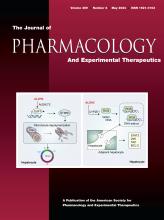Abstract
Adult-onset hypothyroidism impairs normal brain function. Research on animal models of hypothyroidism has revealed critical information on how deficiency of thyroid hormones impacts the electrophysiological and molecular functions of the brain, which leads to the well known cognitive impairment in untreated hypothyroid patients. Currently, such information can only be obtained from experiments on animal models of hypothyroidism. This review summarizes important research findings that pertain to understanding the clinical cognitive consequences of hypothyroidism, which will provide a better guiding path for therapy of hypothyroidism.
SIGNIFICANCE STATEMENT Cognitive impairment occurs during adult-onset hypothyroidism in both humans and animal models. Findings from animal studies validate clinical findings showing impaired long-term potentiation, decreased CaMKII, and increased calcineurin. Such findings can only be gleaned from animal experiments to show how hypothyroidism produces clinical symptoms.
Footnotes
- Received August 18, 2023.
- Accepted February 20, 2024.
The author declares that no funds, grants, or other support were received during the preparation of this manuscript. Administrative support was provided by the department of PPS and University of Houston.
The author declares no conflict of interest of any kind.
- Copyright © 2024 by The American Society for Pharmacology and Experimental Therapeutics
JPET articles become freely available 12 months after publication, and remain freely available for 5 years.Non-open access articles that fall outside this five year window are available only to institutional subscribers and current ASPET members, or through the article purchase feature at the bottom of the page.
|






